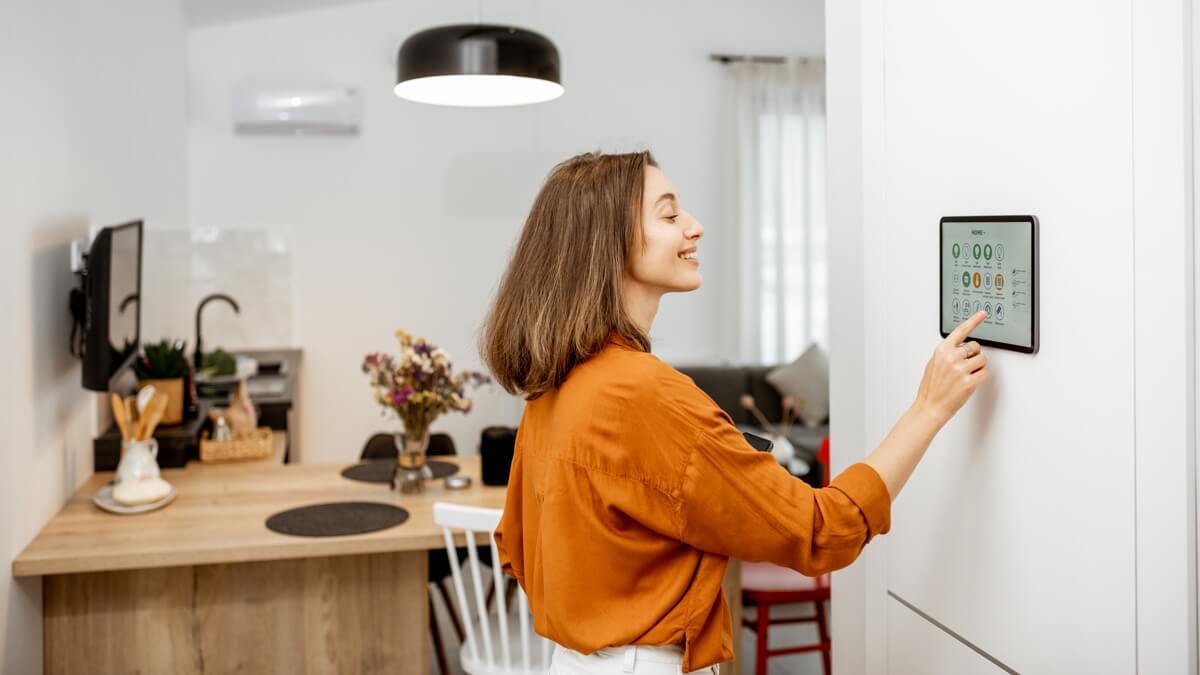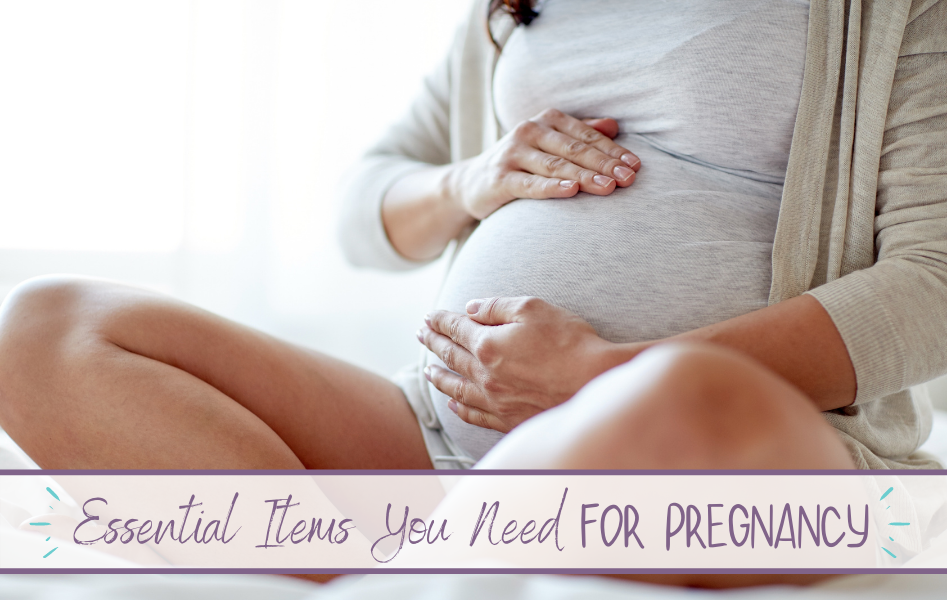The overlooked practice to lose weight for good
Do you want to slim down? Are you dissatisfied with your present weight? We put forth a lot of effort to trouble weight at times. We work out, eat a strict diet, and do trials with other strategies to lose weight. If you are overweight, we are confident that you have tried different colorful styles to lose weight. However, we occasionally make frequent miscalculations and overlook important aspects of our weight-loss process.
Getting relief from Stress Eating is one of the most overlooked practices to lose weight.
What is stress eating, and how does it affect you?
 Stress eating is when you eat because you're stressed out rather than starving. Fog Eating is how we refer to it at Noom.
Stress eating is when you eat because you're stressed out rather than starving. Fog Eating is how we refer to it at Noom.
That's because stress eating makes you feel as if you're in a fog, which makes you lose touch with actual hunger and passion of wholeness.
Stress eating happens when you eat to relieve feelings of loneliness, boredom, worry, or despair, and the phrase "stress" spans a wide range of emotions.
All of these feelings and others may urge you to seek solace from a very trustworthy source: Food.
33% of adults report they overeat or eat unhealthy meals to cope with stress regularly.
Weight gain is the most evident symptom of stress eating.
On the other hand, stress eating is a self-fulfilling loop that, rather than alleviating stress, worsens over time.
Stress eating is only effective for a brief period in relieving stress. The craving reappears as soon as the happy hormones wear off.
You feel lovely at the moment when you eat to satisfy an emotional desire rather than a physical requirement. The food meets your need for distraction and comfort.
When the original awful feeling returns, it is followed by a second destructive emotion: Guilt.
If you gain a lot of weight, you'll probably feel horrible about it, which will fuel the vicious cycle of stress eating even more.
As a result, stress eating will almost certainly result in additional stress eating.
Breaking the cycle is the only way to put an end to it.
What are the symptoms and indicators of stress eating?
If you're not sure if stress is causing you to eat, consider the following:
- When you're under a lot of pressure, do you adjust your eating habits?
- When you're not hungry, do you eat or when you're full?
- Do you eat to avoid confronting a challenging situation?
- Do you use food to alleviate unpleasant emotions such as boredom, loneliness, or anxiety?
- Do you reward 'excellent' behavior with food?
Everyone's stress eating symptoms are different, but if you responded yes to a few of the questions above, you're most likely utilizing food to cope with your negative feelings.
What to Do If You're Overeating When You're Stressed
If you want to learn how to stop stress eating, you must first figure out your trigger foods, why you stress eat, and then come up with alternatives.
In the Noom Weight program, we walk clients through this process.
Pro tip: save the part below as a bookmark, print it out, or take a screenshot of it so you can refer to it whenever you need it.
Step 1: Make a list of your favorite comfort foods.
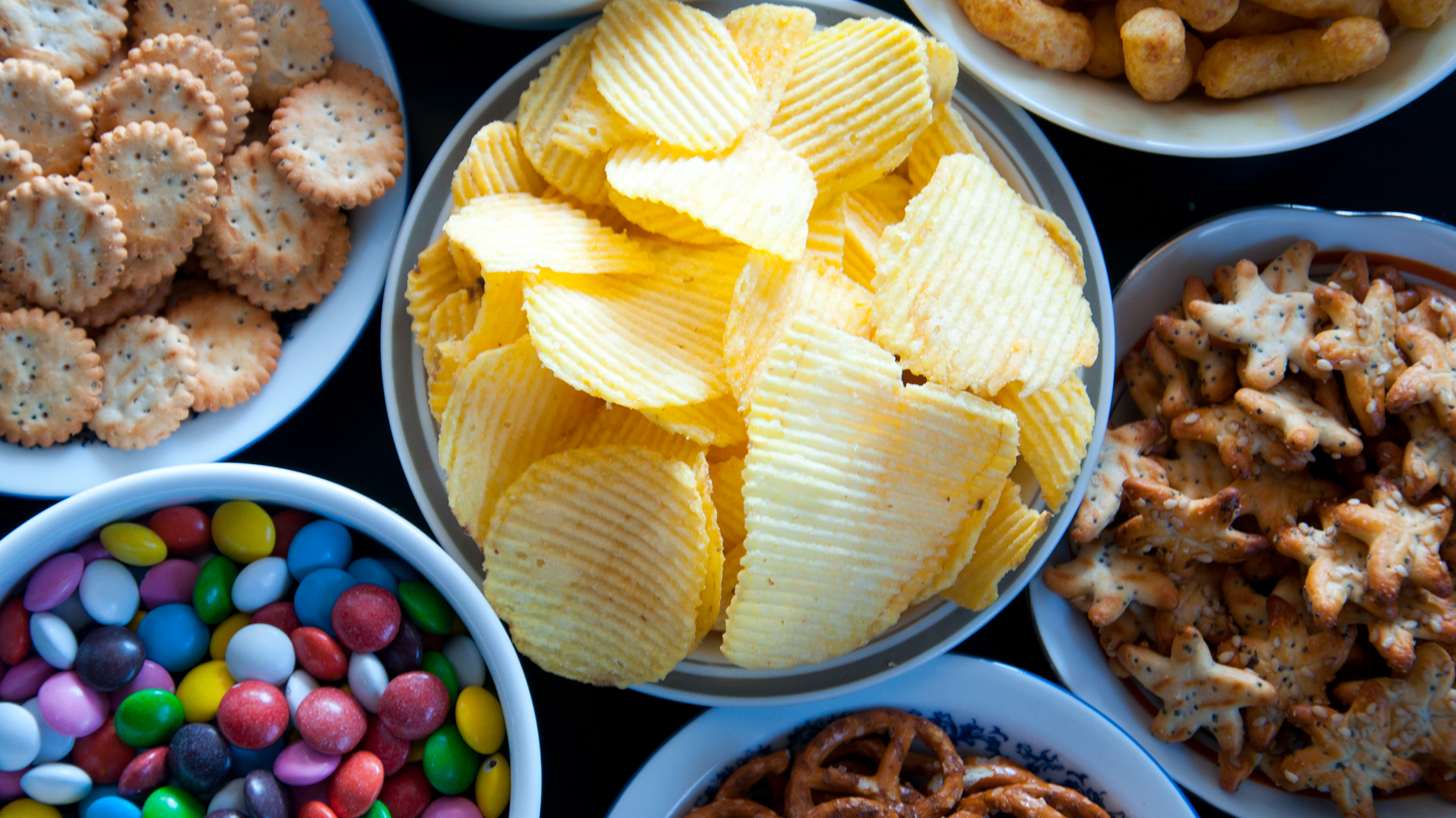 To begin, identify which meals you crave when you're anxious.
To begin, identify which meals you crave when you're anxious.
Knowing what kind of cuisine you like—sweets, baked goods, or grilled cheese sandwiches, for example—is essential, according to the Mayo Clinic.
It's critical to recognize the warning indications that you're starting stress eating.
And the most substantial warning flag is an overpowering want to eat your comfort foods.
Step 2: Recognize the emotion that causes you to eat.
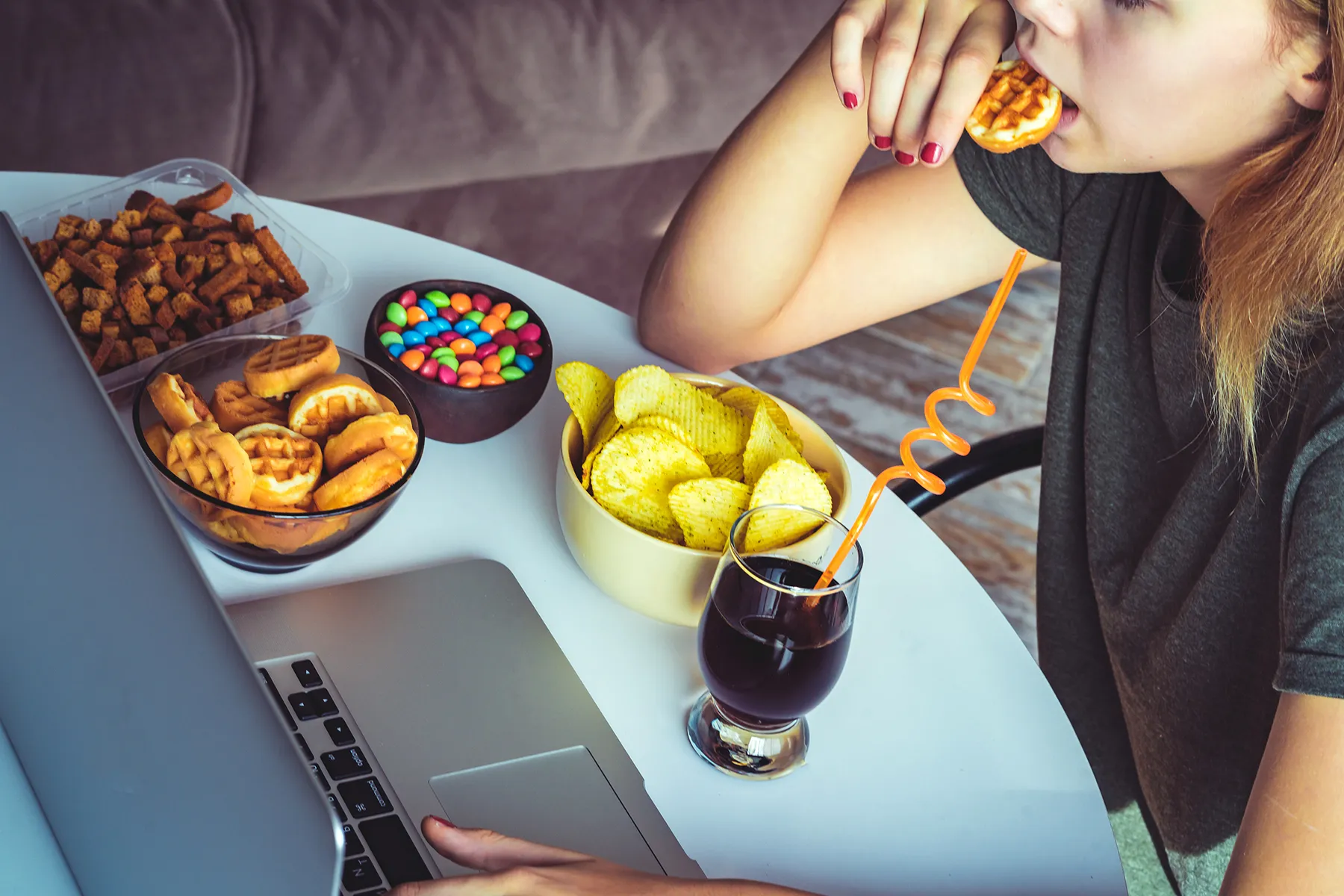 When you're tempted to reach for your comfort food, think to yourself:
When you're tempted to reach for your comfort food, think to yourself:
- What emotion am I experiencing at the moment?
- Is it stress? Boredom? Sadness?
Simply recognizing the sensation or emotion can be a significant step toward opting to do something other than eat.
If you're having trouble figuring out what you're feeling, try using our Emotion Wheel: Emotion wheel Noom
Step 3: Figure out why you're feeling that way.
It's helpful to figure out what created that emotion in the first place once you've identified what you're feeling.
Have you had a particularly difficult day at work? Have you been injured by a friend? Or did the penguin documentary give you the creeps?
When you figure out what's generating the tension, you may either eliminate the source of the stress or adopt an alternative response.
Step 4: Look for other ways to eat.
What brings you joy?
What's anything you could do the next time you're anxious that's both practical and realistic?
Step 5: Reassess and see how things are progressing.
Experimentation is an essential aspect of the habit-changing process.
After a few days of experimenting with different options, ask yourself:
- Which choices were the most effective? Which ones didn't fare as well?
- Do you need to swap out a few for a few days and try different ones?
- You are not required to be flawless.
- You're considerably more inclined to overeat if you punish yourself. You're subject to a basic human desire when it comes to food.
- Make an effort to treat yourself with kindness.
Note: We understand how difficult it is to overcome stress eating. And that simply reading a blog post isn't sufficient. That's why, when you sign up for Noom, a one-on-one goal specialist will work with you to identify you’re eating habits and devise a plan to combat stress eating. More information can be found here.
How to Avoid Workplace Stress Eating
 The following suggestions can assist you if you stress eat at work: Start your day off well with a full stomach.
The following suggestions can assist you if you stress eat at work: Start your day off well with a full stomach.
Make a hearty breakfast that will keep you full until lunchtime. Making porridge with fruit and nuts or scrambled eggs with chopped vegetables takes little time.
According to research, eating most of your calories at breakfast keeps snacking to a minimum throughout the day.
Consume plenty of protein and healthy fats.
Protein and good fats (think fatty fish, almonds, and avocados) help maintain blood sugar levels throughout the day.
Because blood sugar drops can promote anxiety and depression, this not only keeps you fuller for longer but also makes you feel less worried. That's what we call a win-win situation at Noom.
Taking regular breaks is essential.
This entails getting up from your desk, getting some fresh air, and exercising your body. Increase your time spent outside.
Meetings became a massive cause of stress for one Noomer. So, she spoke with her supervisor, and they began holding one-on-one sessions outside while walking.
How to Avoid Nighttime Stress Eating
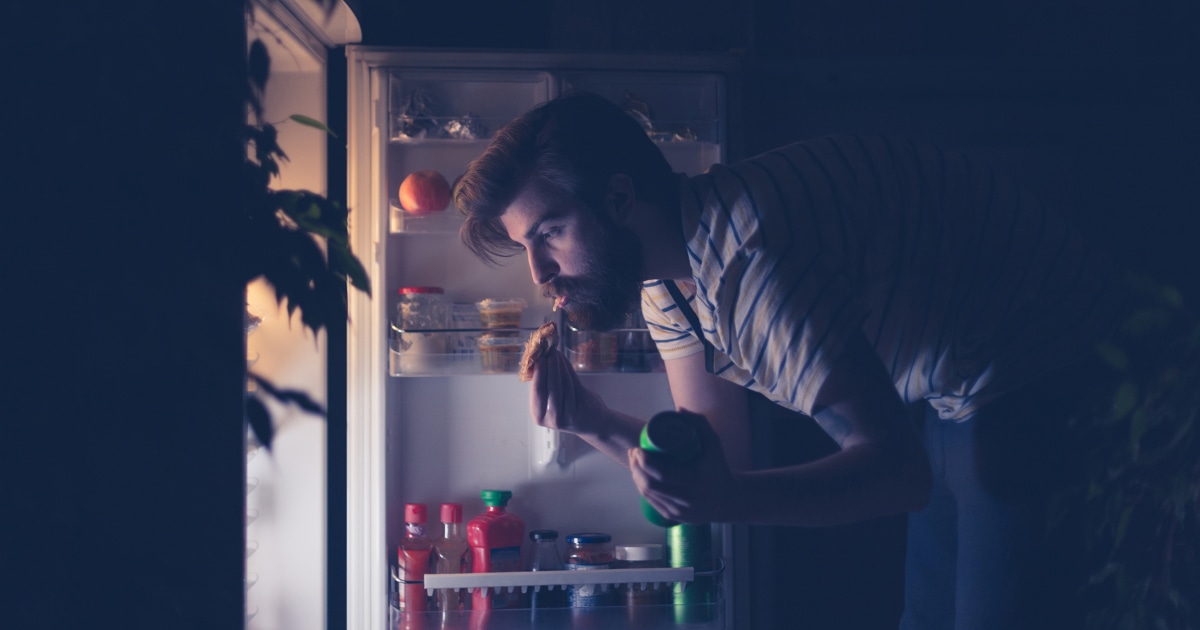
Did you know that if you're anxious during the day, your hormones can drive you to the kitchen at night?
According to a new study, stress during the day stimulates the release of ghrelin (the hunger hormone) at night. As a result, stress reduction at work (as mentioned above) is critical.
We're also more inclined to overeat at night because we're closer to the kitchen and less preoccupied with the day's activities.
It helps to reduce temptation at home if you stress eat at night.
You'll almost certainly eat the food if it's available. Make sure you have enough nutritious snacks on hand or quit eating.
There's no need to eat anything else after your last meal of the day, and studies show that fasting for at least 14 hours overnight is beneficial to many people.
If you do feel a craving for a snack in the evening, keep pre-portioned foods in your pantry to satisfy your hunger without causing you to overeat.
With Noom Weight, you can put an end to stress eating.
Stress eating can feel like something we have no control over for many of us.
And attempting to change it can be exhausting. It is, nonetheless, doable. That is why Noom Weight was formed.
Our mission is to assist those who are having difficulty dealing with the emotional aspects of eating to:
Learn more about your connection with food.
Make a conscious effort to be more aware of your activities.
Give you the information and assistance you need to make long-term changes.
Sign up for a free Noom trial here.
When should you seek professional assistance for stress eating?
We recommend that you get professional help if stress eating has led to binge eating.
If you encounter three (or more) of the following, you're likely experiencing episodes of binge eating, according to the National Eating Disorder Association:
- Eating at a considerably faster rate than usual.
- Food consumption till you feel uncomfortably full
- When you're not physically hungry, you eat a lot of food.
- You're dining alone because you're ashamed of how much you're eating.
- You may feel dissatisfied with yourself, depressed, or extremely guilty after overeating.
You don't have to go through this alone if that's the case. Please seek assistance from your doctor or mental health professional.
You can also phone or text the National Eating Disorder Association helpline if you need immediate assistance.


